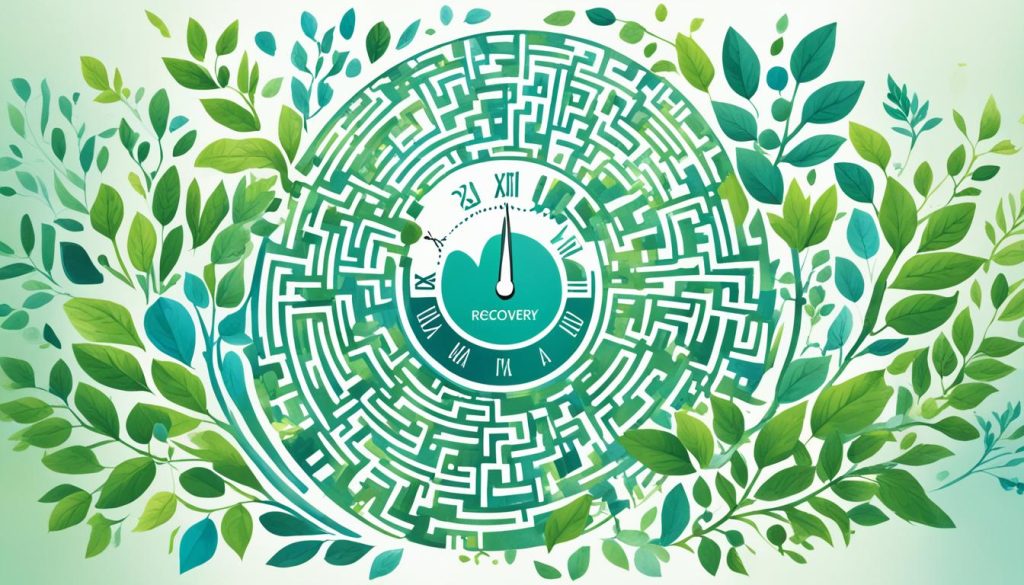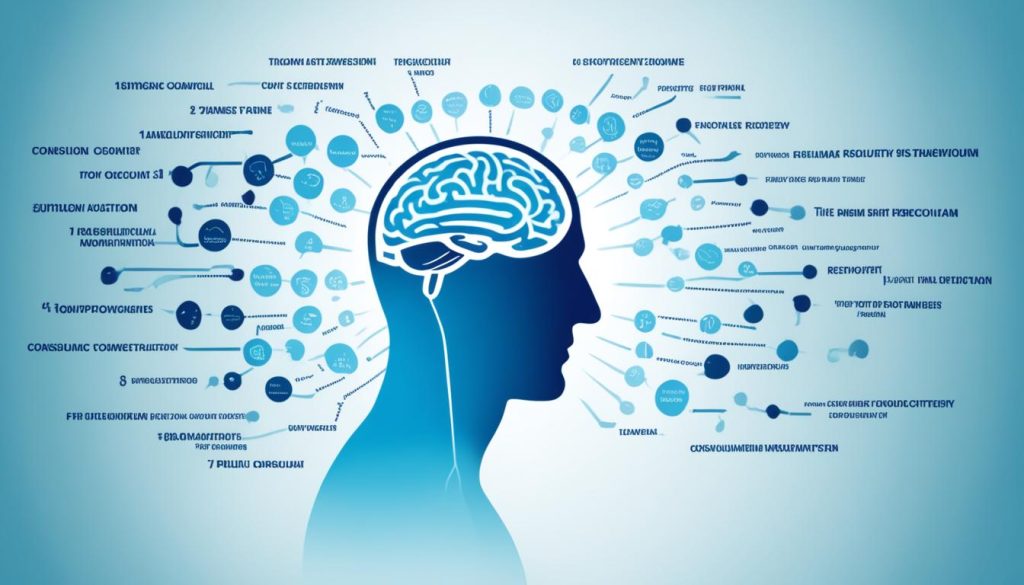A concussion is a common injury that occurs due to a blow, bump, or jolt to the head. It can disrupt the normal functioning of the brain and lead to a range of symptoms. If you’ve recently suffered a concussion, you may be wondering how long it will take for you to heal and recover.
Recovery time for a concussion can vary from person to person, but on average, approximately 80% of concussions resolve within 7-14 days. This means that most individuals start feeling better and experiencing fewer symptoms within this timeframe. However, the overall recovery timeline can depend on several factors, including the severity of the injury and a person’s individual circumstances.
During the acute phase of recovery, it’s crucial to give your brain both mental and physical rest. This means avoiding activities that require increased brain activity, such as texting, computer use, and physical exertion. Resting your brain can help speed up the healing process and prevent further injury.
As you progress in your recovery, you will enter the recovery phase, where you’ll start to experience physical improvement and can gradually return to your daily activities, including academic and athletic pursuits. However, it’s important to listen to your body and not push yourself too hard. Gradually increasing your activity levels under medical guidance is essential for a safe and successful recovery.
In some cases, a chronic phase may occur, where symptoms persist for a longer period or worsen over time. If this happens, specialized treatment may be necessary. Each concussion is unique, and individualized care is crucial for optimal recovery.
It’s important to remember that while the majority of concussions heal within the 7-14 day timeframe, every person’s recovery is different. If you have any concerns or if your symptoms persist or worsen, it’s always best to seek medical advice and guidance for proper evaluation and management.
Concussion Symptoms and Danger Signs
A concussion can result in a wide range of symptoms that vary from person to person. These symptoms can manifest physically, behaviorally, cognitively, and even affect sleep patterns. It is essential to identify and understand these symptoms to ensure proper diagnosis and treatment. Here are some common concussion symptoms:
- Headaches
- Nausea/vomiting
- Tinnitus
- Blurred vision
- Irritability
- Depression/anxiety
- Difficulty focusing
- Sleep disturbances
While experiencing these symptoms can be concerning, it is important to be aware of danger signs that may indicate a more serious injury requiring immediate medical attention. Pay close attention if you or someone you know experiences:
- One pupil larger than the other
- Worsening headaches
- Seizures
- Neck pain
- Unusual behavior changes
- Increased drowsiness
- Repeated vomiting
- Slurred speech
- Problems recognizing people or places
- Increased confusion
- Weakness or numbness in the limbs
- Difficulty awakening
These danger signs may indicate a more severe concussion or other underlying conditions that warrant immediate medical evaluation.
Being aware of the potential symptoms and danger signs associated with concussions is crucial to ensure prompt medical attention and appropriate management. If you or someone you know experiences any of these symptoms or danger signs following a head injury, it is vital to seek medical evaluation for proper diagnosis, treatment, and a safe recovery.
How Long Does It Take for a Concussion to Heal?
Concussion recovery can be influenced by various factors that contribute to the duration of the healing process. These factors include:
Previous Concussions or Brain Injuries
Individuals with a history of concussion recovery or other brain injuries may experience delays in recovering from a new concussion. The cumulative effects of multiple concussions can prolong the healing time.
Neurological or Mental Health Disorders
People with pre-existing neurological or mental health disorders may have a slower concussion recovery rate. These underlying conditions can complicate the healing process and require specialized care.
Learning Difficulties
Individuals with learning difficulties may experience challenges during concussion recovery. These difficulties can impact cognitive function and prolong the overall healing timeline.
Family or Social Stressors
Stressful family or social situations can impede concussion recovery. Factors such as family conflicts or limited support systems can contribute to prolonged symptoms and delay the healing process.
While most children and teens with a concussion recover within a couple of weeks, it is important to acknowledge that some individuals may experience symptoms that last for months or longer. If symptoms persist or worsen even after returning to regular activities, healthcare providers may consider a diagnosis of post-concussive syndrome. Post-concussive syndrome refers to a condition where symptoms continue to persist beyond the expected recovery delays timeline.
Every concussion and each person’s recovery journey is unique, necessitating a concussion recovery plan tailored to an individual’s specific symptoms and circumstances.

Tips for Promoting Concussion Recovery
During the recovery process, there are several tips and strategies that can help promote healing and facilitate a smooth concussion recovery. By implementing these tips, individuals can optimize their recovery and return to their normal activities in a safe and timely manner.
1. Prioritize Rest and Sleep
Adequate rest and sleep are crucial for concussion recovery. It is important to allow the brain to heal by minimizing activities that require increased brain activity, such as texting, computer use, and physical exertion. By giving the brain the rest it needs, individuals can support the healing process and reduce the risk of prolonged recovery.
2. Maintain Proper Hydration
Proper hydration is essential for overall health and plays a significant role in concussion recovery. Drinking enough water helps maintain the functions of the brain and aids in the body’s natural healing processes. It is important to drink an adequate amount of water throughout the day to ensure proper hydration.
3. Follow a Healthy Diet
A well-balanced and nutritious diet can provide the essential nutrients and vitamins needed for optimal recovery. Including plenty of fruits, vegetables, whole grains, lean proteins, and healthy fats in the diet can support the healing process and boost overall well-being. It is important to consult with a healthcare provider or a registered dietitian for personalized dietary recommendations.
4. Take Regular Breaks
When returning to activities, whether it’s academic or physical, taking regular breaks is crucial. This allows the brain to rest and recover in between tasks, preventing overexertion and minimizing the risk of symptom exacerbation. By incorporating regular breaks into daily routines, individuals can gradually increase their activity levels while still promoting a safe recovery.
5. Avoid Alcohol and Stimulants
During the recovery phase, it is advisable to avoid alcohol and stimulants. Alcohol can interfere with the healing process and may worsen symptoms. Stimulants like caffeine and energy drinks can disrupt sleep patterns and hinder the body’s natural restorative processes. By eliminating or reducing the intake of these substances, individuals can support their recovery and facilitate a faster healing process.
6. Gradually Incorporate Light Exercise
Light exercise can be beneficial for concussion recovery as it promotes blood flow and helps the body heal. However, it is important to emphasize gradual progression and listen to the body’s signals. Start with low-impact activities, such as walking or stationary cycling, and gradually increase the intensity and duration as tolerated. Avoid activities that involve potential head trauma, contact sports, or activities that may increase the risk of injury.
Remember, every concussion and every individual’s recovery is unique. It is essential to consult with a healthcare provider for personalized guidance and recommendations based on individual circumstances. If symptoms persist or worsen, it is important to seek medical attention for appropriate management and further evaluation.
By following these concussion recovery tips and gradually increasing activity levels, individuals can optimize their recovery, minimize the risk of setbacks, and safely return to their normal routines.
Timetable for Concussion Recovery
When it comes to concussion recovery, the timetable can vary from person to person. Factors such as age, severity of the concussion, and overall health can influence the duration of the recovery process. Younger children and older adults tend to take longer to recover compared to adolescents and young adults.
It’s important to understand that trying to rush the healing process or not properly managing symptoms can actually prolong recovery time. The brain needs time to heal, and pushing too hard can hinder the recovery process. Gradual progression and increasing activity levels under medical guidance are key.
If symptoms persist or worsen during recovery, it is highly recommended to seek medical advice for further evaluation and management. Every individual and every concussion is unique, so it is important to receive personalized care to ensure a safe and successful recovery.

Recovery Variations
Recovery variations are common when it comes to concussions. While some individuals may recover within a few weeks, others may experience a longer recovery period. It is crucial to remember that everyone’s recovery journey is different.
Factors such as pre-existing medical conditions, previous head injuries, and overall health can contribute to recovery variations. These variations emphasize the importance of individualized care and a tailored approach to managing concussion symptoms.
Medical professionals play a vital role in monitoring recovery progress, evaluating symptoms, and guiding patients through the healing process. If you or someone you know is experiencing a concussion, it is crucial to seek medical attention and follow their advice for the best possible outcome.
| Factors Affecting Concussion Recovery | Recovery Timeline |
|---|---|
| Age | Can influence recovery time, with younger children and older adults taking longer to recover. |
| Severity of the concussion | More severe concussions may require a longer recovery period. |
| Pre-existing medical conditions | Individuals with pre-existing conditions may experience delays in recovery. |
| Overall health | A healthy lifestyle can positively impact the recovery process. |
It’s important to note that the information provided in the table is for general reference and may not apply to every individual. Each concussion is unique, and recovery variations should be expected. Following medical advice and receiving appropriate treatment is essential for a successful recovery.
Conclusion
Concussion healing time can vary, but approximately 80% of concussions resolve within 7-14 days. Prioritizing mental and physical rest during the acute phase of recovery is essential for safe recovery. Under medical guidance, gradual return to academic and athletic activities can aid in the healing process. It is crucial to understand the symptoms and danger signs of a concussion for prompt medical evaluation, as factors such as previous injuries, neurological disorders, and stressors can affect recovery time. Following recommended strategies, such as proper rest, hydration, and nutrition, can support the healing process. Each concussion and individual’s recovery is unique, requiring customized care for optimal results.




